Online marketing is a vast, ever-changing landscape. But, the right content marketing tools can help you navigate it successfully. Whether you need help with social media marketing, analysis, content, email, or management, we have a tool for you in this list.
If you’re starting from scratch, you’ll find a lot of valuable information here. But even a seasoned marketer should be able to find something new. And the search for something new is a hunt that we should all be engaged in.
Today, we will be looking at 21 of the best content marketing tools to use in 2024.
Why is Online Content Marketing Important?
Marketing a small business is important in so many aspects. From getting your business name out there to connecting with potential clients.
The way you market a small business and how potential customers perceive your business can mean the difference between increased sales and being successful, or decreased sales because your marketing efforts are not quite where they should be.
Sometimes, it can be tricky knowing where the right content marketing tools are. Below you will find a list of marketing tools that will help you succeed with all of your online marketing plans and help grow your business exponentially.
The Best Content Marketing Tools to Use
1. Google Analytics
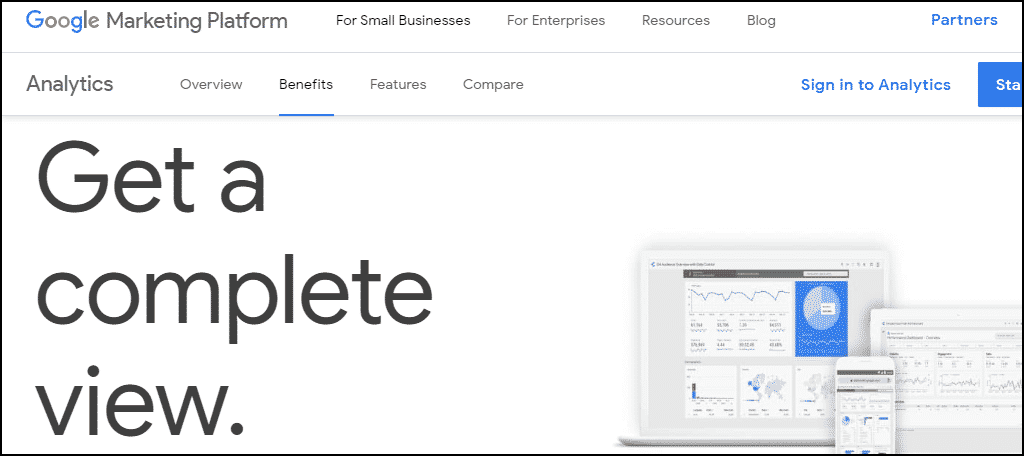
Was there any doubt? But seriously, in terms of raw data about your website, there isn’t a better tool. The reports are comprehensive, and the possibilities are endless.
It would take a separate article to describe the benefits of Google Analytics adequately, but if you are under the impression that it’s nothing more than visitor numbers, rest assured, that’s only the tip of the iceberg.
Yes, Analytics will tell you how many people visit your website. But, it will also tell you where they live. Which sites send traffic your way.
Which marketing tactics are most effective in driving traffic to your site? How many visitors convert into customers? Which pages of your website are the most popular? What content do visitors like the most?
The list is long, and the insights are a gold mine.
Not only that, Analytics can tell you how to improve your website’s speed, giving you detailed advice and methods. Google Analytics is hands down one of the very best online marketing tools for a small business that you will find.
2. CoSchedule

The CoSchedule Editorial Calendar can be your everyday go-to application when juggling blogs and social media for multiple brands or products under one roof. It integrates with WordPress, so new posts are automatically added to the CoSchedule calendar.
With this tool, you can schedule Tweets, posts to Facebook, Instagram, LinkedIn, and even Pinterest. You can change social media posting dates with a simple drag and drop.
The calendar is also a good workflow manager/tracker for WordPress posts that are in progress. Team members can view each other’s work and comment or edit before publication.
The CoSchedule WordPress integration does more than just add new posts to the CoSchedule calendar. You can write and schedule social media posts from WordPress, while you are writing a post. When the post is published, CoSchedule takes over the promotion.
It’s a tremendous organizer and time saver, and once you use it, you’ll wonder how you ever lived without it.
3. ContentStudio

ContentStudio is a very powerful content marketing and social media management platform. This tool is a must-have no matter who you are or what you’re building. Publishers, brands, startups, and agencies can all use this tool to share content across platforms and increase their reach to customers.
ContentStudio has a planner, automatic content publisher, excellent analytics, and a tool to help you discover top-performing content across different industries. They are a leading content discovery engine that can be used to help grow your business in several different ways.
If you have been looking for a tool that brings powerful content management and social media interaction to the table, then ContentStudio is one worth looking into.
4. BuzzSumo
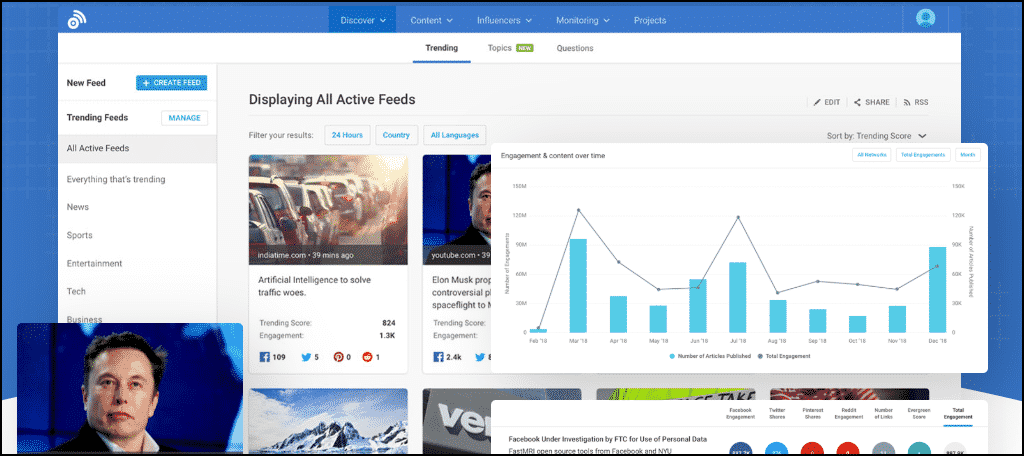
BuzzSumo is similar to keyword analyzers, but it focuses on social media sites, gathering information on the conversations that are the most popular topics of conversation. It can tell you which topics are being talked about and how much attention the topics are getting.
It also shows who people are paying attention to. If you want to know who the influencers are where specific topics are concerned, BuzzSumo is the perfect place to find them.
So you can use BuzzSumo not only to find out what the hot topics of conversation are but also to find out who to engage with. Contact and follow the influencers to get the most out of the social conversation.
If your business can benefit from keeping your finger on the zeitgeist, BuzzSumo is an essential tool.
5. Answer The Public

Answer The Public is a handy tool that gives you a graphic representation of related keywords for any phrase that you enter.
These are the questions that search engine users are asking. If you can answer those questions, you will improve your ranking for those questions in search engine results.
Do you have content that covers the keywords related to your website or business? Use Answer The Public to find out.
6. HotJar
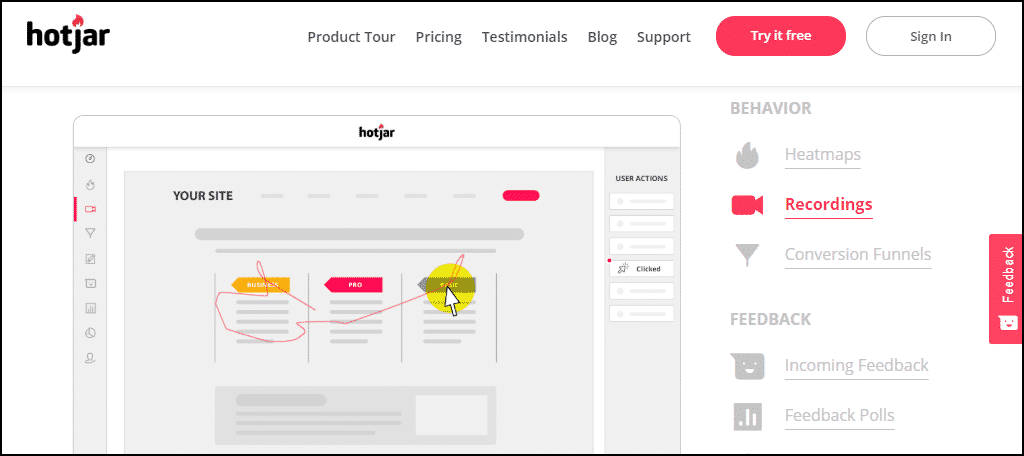
HotJar is a website analytics tool that shows you how visitors interact with your site. One of the best marketing tools for a small business; isn’t limited to analyzing link clicking behavior. It can show you how your visitors interact with each page.
Among other things, it records and analyzes clicks, taps, and scrolling behavior. It provides you with real-world use data that traditional statistics and analytics can’t.
Are your website visitors not scrolling past a certain point on an important page? Why not?
Once you see a behavior, you can take steps to improve your website and make sure visitors aren’t missing out on the information you want them to have (and you aren’t missing out on sales).
7. MailChimp

Every good marketing strategy includes email. There are dozens of popular email marketing tools, but one of the best is MailChimp.
I was a ConstantContact user for a long time. But several years ago, I switched to MailChimp and haven’t looked back. MailChimp is easier to use and provides better tools to make the most of your email campaigns.
It’s also less expensive than ConstantContact if you send a lot of mail. (If you have fewer than 2,000 subscribers and send fewer than 12,000 emails per month, it’s free!)
MailChimp – an unfortunate name, perhaps, but an excellent tool.
8. Google Natural Language
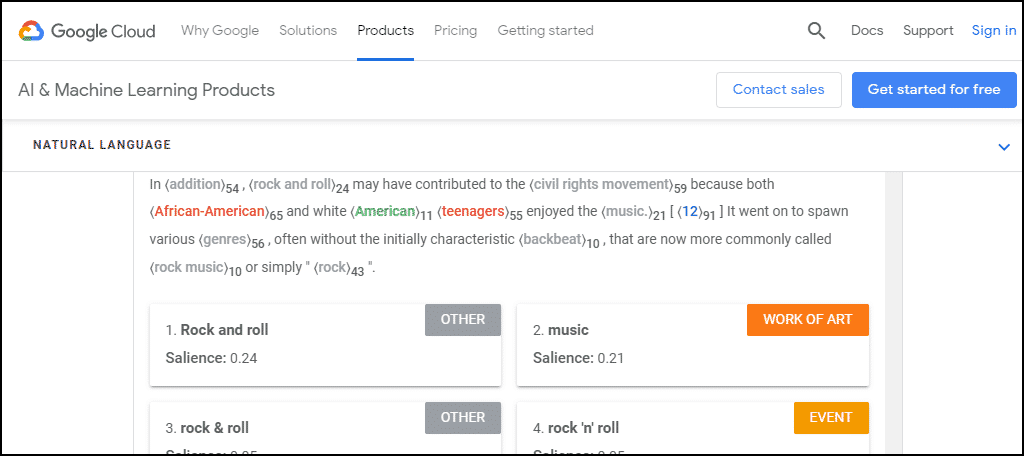
The Google Natural Language tool gives you an analysis of how Google sees the text on your website. It breaks down the language on your page into entities, sentiment, syntax, and categories.
That’s useful information to have, but the Natural Language tool shines when you use it to analyze pages that rank above yours in search results.
Analyzing the top one or two pages can give you insight into ways to improve your site (or pages). Look for important associations in the “Entities” section. The “Salience” rating tells you how much that particular word or phrase stands out from similar content online.
The closer to 1, the more unique and salient the information.
Are you focusing on the same things? Perhaps if you do, you’ll be able to give those higher-ranking pages a run for their money.
Check out the “Sentiment,” “Syntax,” and “Categories” tabs as well, for more valuable information.
To use the tool without going through the technical hurdles of writing code to access the Google API, enter text copied from the page you want to analyze into the “Natural Language API demo” box and click the “ANALYZE” button.
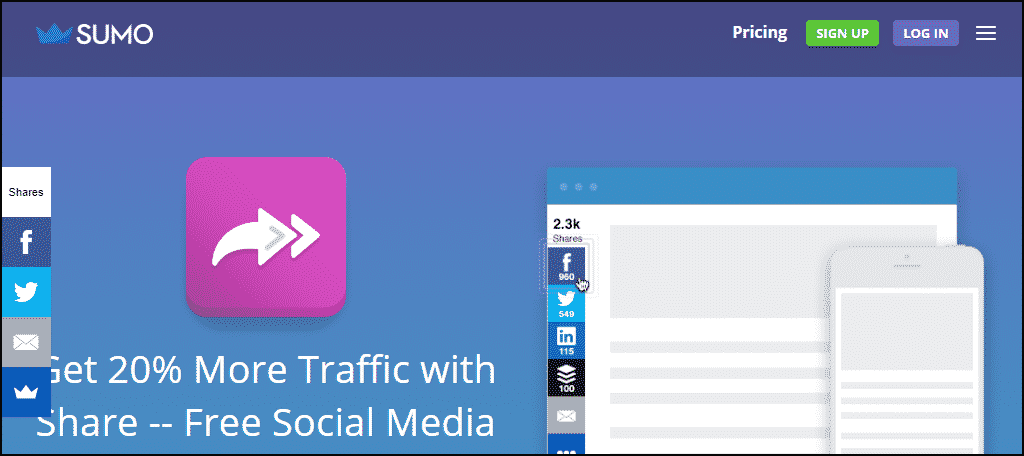
Your website visitors are one of your best free advertising tools. Making it easy for them to share your content can increase traffic to your website. SumoMe Share makes it easy to create and place share buttons for maximum impact and usability.
SumoMe lets you add share buttons for all of the popular social sites (Facebook, Twitter, etc.), but also some lesser-known sites that you may want your visitors to share to. In fact, they offer links to more than 65 services.
And unlike some other share button generators, the SumoMe buttons adapt well to mobile devices.
10. MentionMapp

If Twitter is part of your marketing strategy (and of course, it should be) MentionMapp will help you gain a better view of your Twitter landscape. It provides you with a relationship chart, meaning you can see which Twitter users are connected to your brand, and who those users are connected to.
It’s a great way to identify influencers and gauge the effectiveness of your Twitter activities.
11. Hootsuite

Hootsuite is similar in many ways to CoSchedule, but it’s more affordable (in most scenarios), and some functions are easier to use. It does social media posting to multiple destinations (live or scheduled), but it also lets you zero in on what you’re looking for with keyword searching.
But not only keywords as you can also search social conversations by hashtag or location. The search capabilities are useful when you want to research your brand to find out what people are saying (or not saying) about you.
Hootsuite is also free to use, but if you need more than one user and three social profiles, you’ll have to move up to a paid tier. Paid users can schedule more messages and have access to additional team features and metrics.
12. Yoast SEO

If you use WordPress for your website or blog, you need the Yoast SEO plugin. The Yoast plugin does things like sitemap generation, but the area where it excels is in keyword optimization of your articles and pages.
It will guide you in making sure that Google sees your content the way you want it to be seen. In addition to real-time SEO analysis, it also provides a readability analysis, grading your content for ease of reading, sentence length, and subheading distribution, among other things.
Using Yoast will not only help you fine-tune your content, but it will also teach you how to use SEO methods that you can apply to content outside of WordPress.
13. Crisp
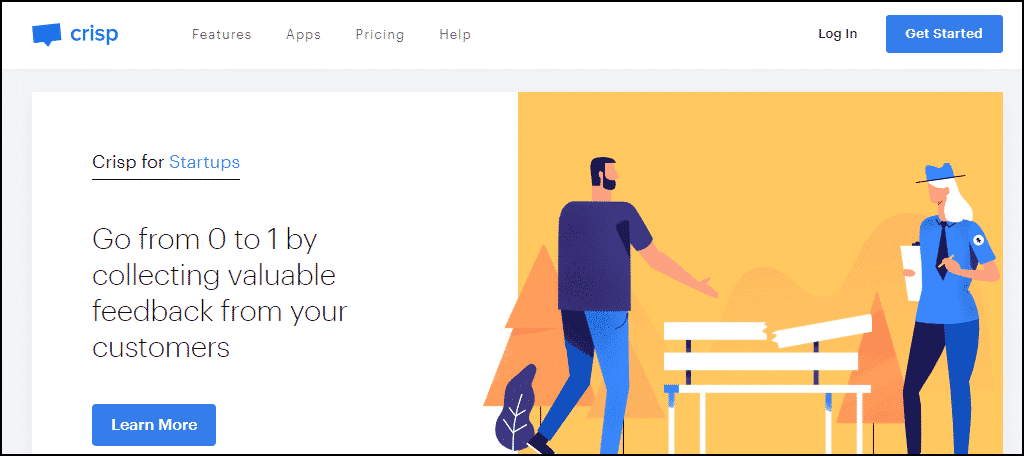
Crisp is a customer chat program that allows website visitors to open up a window and chat with you or your staff. Live chat is a pretty common feature for larger companies, but if you run a single-person shop, you can gain a lot of insight speaking with potential customers.
There are a lot of live chat programs out there, but Crisp has some cool features, like the ability to send email marketing messages based on data visitors have provided. It’s one of the most useful online marketing tools you can find.
14. SurveyAnyplace
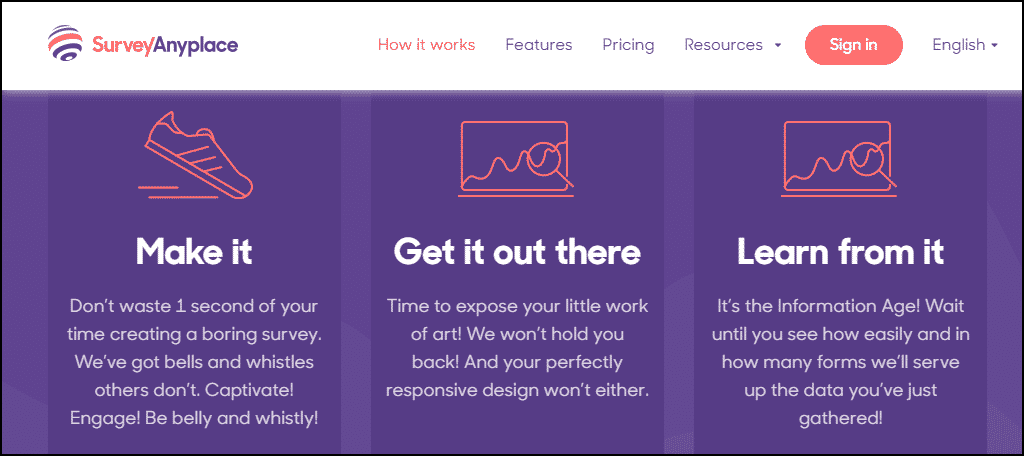
There’s no better way to know what your customers (and potential customers) want than by asking them directly. It’s easy to create surveys using SurveyAnyplace. I like the data visualization they use, so the information gathered from the responses is more useful than some other survey-builder marketing tools.
Another big advantage of SurveyAnyplace is the questionnaires just look good. That may seem trivial, but an attractive presentation leads to a greater level of response and involvement.
Let SurveyAnyplace guide you through your survey creation…you’re in good hands.
15. Canva
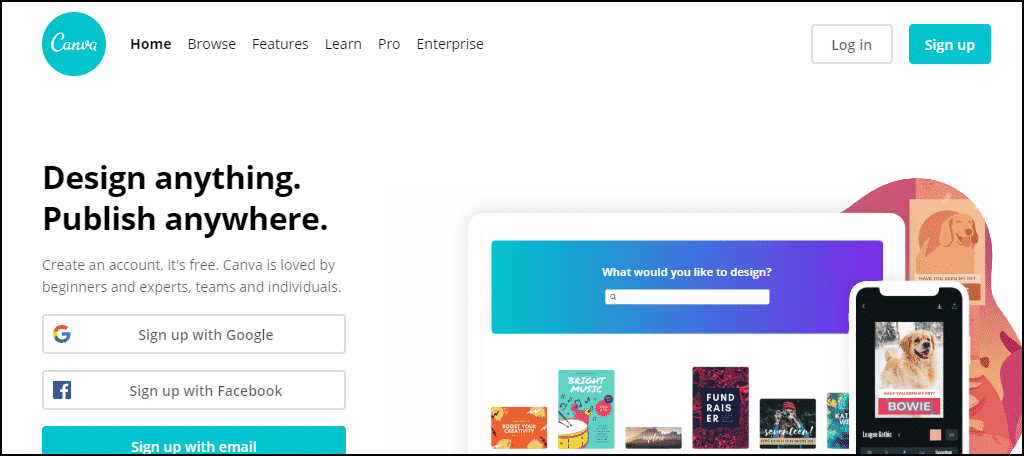
Canva is an image generation tool. That may not sound like much, but check out their templates for social media images. They are a great help when you need to create graphics for several different platforms.
Do you know the best dimensions for images on each social site? I don’t, but even if we did commit them to memory, those dimensions change over time. Let the Canva templates do all the dirty work, and you can concentrate on creating great imagery.
We have an in-depth look at Canva that explains to you much more than I can here.
16. SEO Spider
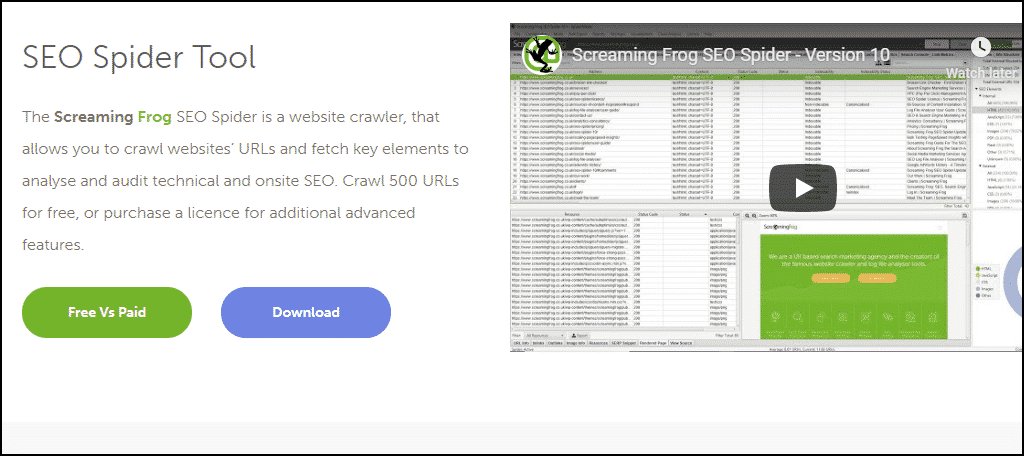
I love the Screaming Frog SEO Spider. It’s a simple tool. It just crawls your website and provides a report of what it finds. But those reports do double-duty, alerting you to technical website issues (broken links, redirects, etc.) as well as issues that can affect your SEO.
It can identify duplicate content, give you an easy-to-scan list of page titles, show metadata – it’s an insight into your website that will help you fine-tune and fix every nook and cranny.
If you don’t think your website has any issues, run the SEO Spider. You may be surprised by what it uncovers.
17. Fanpage Karma

Fanpage Karma is a publishing and discovery tool, but the feature I love is the Facebook page analysis.
Compare your page to other brand pages using metrics like the number of fans, page growth, visitor engagement and interaction, responsiveness – there are over 250 data points available (and most of them are updated every 10 minutes).
If you’ve never compared your Facebook presence to that of your competitors, you’re missing out on valuable data that can help you improve your presence on the world’s largest social network.
18. Grammarly

The best marketing tool is a good first impression. Grammarly looks like nothing more than another spell-checker, but it’s much more than that. It analyzes readability and grammar, and its suggestions can help you avoid overused words and phrases.
Your online business communicates using the written word. It’s how potential customers learn about what you do. Misspellings or incorrect grammar can leave a bad impression and cause visitors to judge you harshly.
Don’t let that happen.
Grammarly works as a browser plugin or a desktop app, so it integrates into just about everywhere you type. In fact, it’s analyzing this article as I write it. 🙂 It alerts me to issues that I may have overlooked and shows me the best way to address those issues.
And I’m even doing this in the WordPress editor!
Another benefit is how it also scans social media posts. This means you’re less likely to leave embarrassing spelling or grammatical mistakes when trying to impress your audience.
I wouldn’t work without it, and once you give it a try, you won’t either.
19. Google My Business

If you own a physical location, you want to get foot traffic, which means local SEO is very important. Google My Business is exactly what you need.
It allows you to display all of your business’s key information on the front page of Google in local searches. For example, if I searched for “Donuts near me,” it would pull up local donut shops in my area.
Appearing in these searches is crucial for success.
This will display your location via Google Maps, your phone number, business hours, and reviews from customers. In reality, this is the most popular way to find local businesses, so you need to set it up today.
20. Sprout Social

Sprout Social is an all-in-one social media management tool. The platform will help you run all of your small business social accounts and make the entire process of posting, scheduling, and everything else involved with social media much easier.
If you are looking for a solid social media marketing tool that can help your small business manage its content, then definitely check this out.
21. LiveChat

Rounding out our list of the best content marketing tools available today is LiveChat. Using this platform is a fantastic way for you to connect with your customers in real-time. It allows you to have online chats with them directly from your business website.
You will be able to answer questions, direct them to products, and help them with anything else they need. Give LiveChat a look and see if it is something that can benefit your business.
Content Marketing Tools Are Everywhere
The 21 content marketing tools we’ve talked about here are some great foundational marketing applications, but they’re only the tip of the iceberg. Trust me, when you zero in on specific marketing tools, say Instagram, there are a lot of helpful apps that make your work there more effective.
Speaking of Instagram, this has been all about tools, but don’t forget to explore different marketing platforms. There are a lot of sites out there beyond Facebook, Instagram, and Twitter.
Find what works for you and focus on that area. Hopefully, what we’ve covered here will be a good basis from which you can explore and branch out.
Improve Sales Today
Online marketing has no boundaries, so get out there and make your mark. The list above gives you access to some of the very best content marketing tools out there today.
Go through them, pick and choose some, test them out, and see which ones (or maybe all) of them work best for your needs. Good luck on your marketing journey!
What are some of your favorite content marketing tools?

